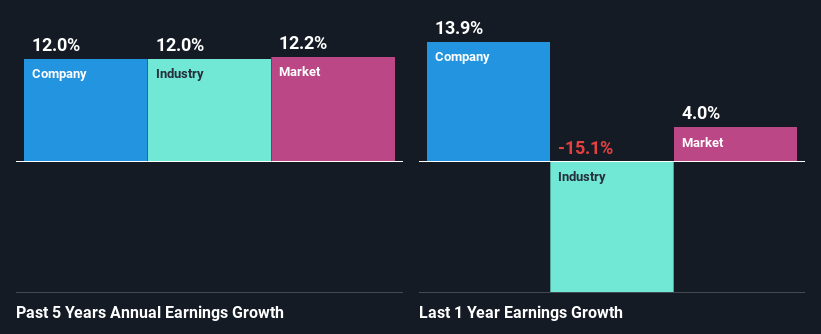Are Robust Financials Driving The Recent Rally In NEXT plc's (LON:NXT) Stock?

NEXT's (LON:NXT) stock is up by a considerable 15% over the past three months. Given that the market rewards strong financials in the long-term, we wonder if that is the case in this instance. Specifically, we decided to study NEXT's ROE in this article.
Return on Equity or ROE is a test of how effectively a company is growing its value and managing investors’ money. Simply put, it is used to assess the profitability of a company in relation to its equity capital.
View our latest analysis for NEXT
How Do You Calculate Return On Equity?
The formula for return on equity is:
Return on Equity = Net Profit (from continuing operations) ÷ Shareholders' Equity
So, based on the above formula, the ROE for NEXT is:
55% = UK£808m ÷ UK£1.5b (Based on the trailing twelve months to July 2024).
The 'return' is the profit over the last twelve months. One way to conceptualize this is that for each £1 of shareholders' capital it has, the company made £0.55 in profit.
What Has ROE Got To Do With Earnings Growth?
Thus far, we have learned that ROE measures how efficiently a company is generating its profits. We now need to evaluate how much profit the company reinvests or "retains" for future growth which then gives us an idea about the growth potential of the company. Assuming all else is equal, companies that have both a higher return on equity and higher profit retention are usually the ones that have a higher growth rate when compared to companies that don't have the same features.
A Side By Side comparison of NEXT's Earnings Growth And 55% ROE
Firstly, we acknowledge that NEXT has a significantly high ROE. Second, a comparison with the average ROE reported by the industry of 17% also doesn't go unnoticed by us. This probably laid the groundwork for NEXT's moderate 12% net income growth seen over the past five years.
Next, on comparing NEXT's net income growth with the industry, we found that the company's reported growth is similar to the industry average growth rate of 12% over the last few years.

Earnings growth is an important metric to consider when valuing a stock. It’s important for an investor to know whether the market has priced in the company's expected earnings growth (or decline). Doing so will help them establish if the stock's future looks promising or ominous. What is NXT worth today? The intrinsic value infographic in our free research report helps visualize whether NXT is currently mispriced by the market.
Is NEXT Making Efficient Use Of Its Profits?
NEXT has a healthy combination of a moderate three-year median payout ratio of 33% (or a retention ratio of 67%) and a respectable amount of growth in earnings as we saw above, meaning that the company has been making efficient use of its profits.
Moreover, NEXT is determined to keep sharing its profits with shareholders which we infer from its long history of paying a dividend for at least ten years. Based on the latest analysts' estimates, we found that the company's future payout ratio over the next three years is expected to hold steady at 36%. Still, forecasts suggest that NEXT's future ROE will drop to 39% even though the the company's payout ratio is not expected to change by much.
Summary
In total, we are pretty happy with NEXT's performance. In particular, it's great to see that the company is investing heavily into its business and along with a high rate of return, that has resulted in a sizeable growth in its earnings. Having said that, the company's earnings growth is expected to slow down, as forecasted in the current analyst estimates. To know more about the latest analysts predictions for the company, check out this visualization of analyst forecasts for the company.
Valuation is complex, but we're here to simplify it.
Discover if NEXT might be undervalued or overvalued with our detailed analysis, featuring fair value estimates, potential risks, dividends, insider trades, and its financial condition.
Access Free AnalysisHave feedback on this article? Concerned about the content? Get in touch with us directly. Alternatively, email editorial-team (at) simplywallst.com.
This article by Simply Wall St is general in nature. We provide commentary based on historical data and analyst forecasts only using an unbiased methodology and our articles are not intended to be financial advice. It does not constitute a recommendation to buy or sell any stock, and does not take account of your objectives, or your financial situation. We aim to bring you long-term focused analysis driven by fundamental data. Note that our analysis may not factor in the latest price-sensitive company announcements or qualitative material. Simply Wall St has no position in any stocks mentioned.
About LSE:NXT
NEXT
Engages in the retail of clothing, beauty, footwear, and home products in the United Kingdom, rest of Europe, the Middle East, Asia, and internationally.
Outstanding track record with excellent balance sheet.
Similar Companies
Market Insights
Community Narratives




